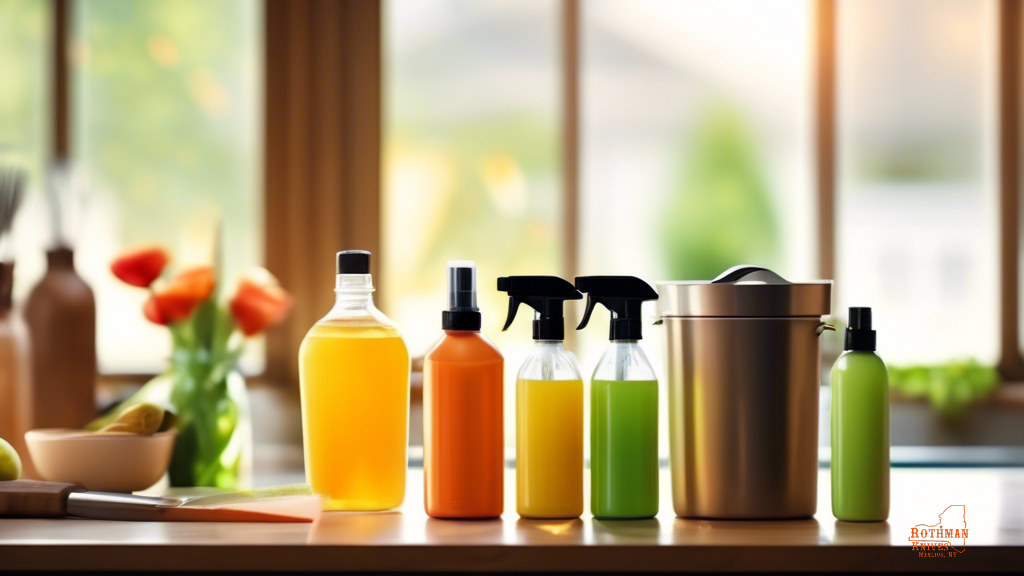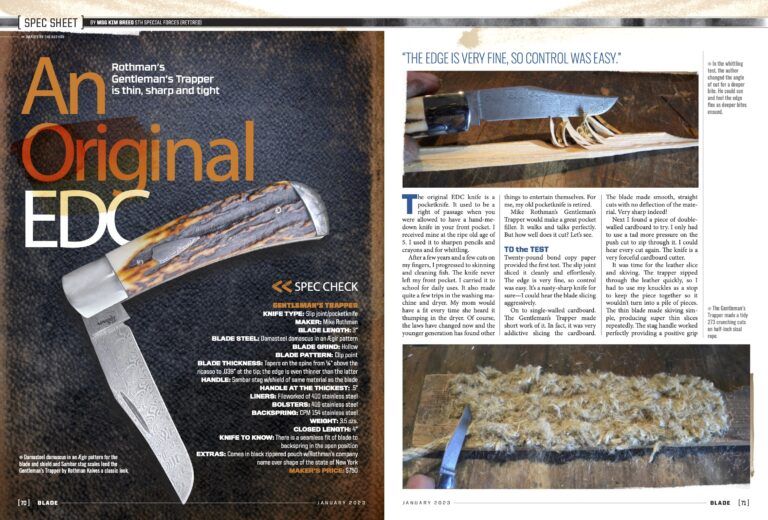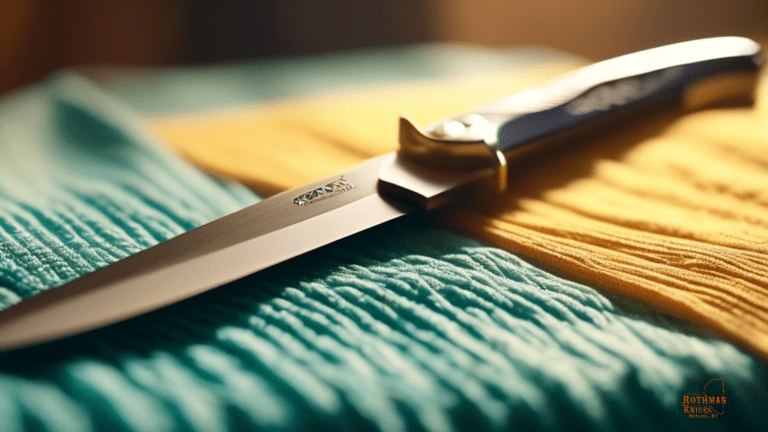Are you tired of your knives looking dull and dirty?
Do you want to find a way to clean them without harsh chemicals?
Look no further!
In this article, you will discover homemade solutions for cleaning your knives that are safe, effective, and easy to make.
By using simple ingredients that you probably already have in your kitchen, you can give your knives the care and attention they deserve.
With these DIY cleaning solutions, you can show your knives some love and keep them looking sharp for all your cooking adventures.
Not only will you save money by using ingredients you already have at home, but you will also feel a sense of accomplishment knowing that you are taking care of your kitchen tools in a natural and eco-friendly way.
So, roll up your sleeves, grab your cutting board, and let’s get those knives sparkling clean!
Key Takeaways
- Homemade cleaning solutions for knives are safe, effective, and easy to make using simple ingredients found in the kitchen.
- Using DIY cleaning solutions for knives can help save money, provide a sense of accomplishment, and contribute to using natural, eco-friendly ingredients.
- Specific cleaning solutions like vinegar and baking soda, lemon and salt scrub, olive oil and lemon juice polish, hydrogen peroxide and baking soda paste, and dish soap and warm water soak are effective for maintaining sharp and clean knives.
- These homemade solutions not only clean knives effectively but also help in removing tough stains, sanitizing, and enhancing the shine of the knives.
Vinegar and Baking Soda Solution
If you’re looking for a simple and effective way to clean your knives, try using a vinegar and baking soda solution – it’s like a homemade magic potion for cutting through grease and grime!
All you need to do is mix equal parts of vinegar and water in a bowl, then add a sprinkle of baking soda to create a powerful cleaning solution. The acidity of the vinegar helps to break down tough stains and residue, while the abrasive nature of the baking soda helps to scrub away any stubborn spots on your knives.
Once you’ve mixed up your vinegar and baking soda solution, simply dip a clean cloth or sponge into the mixture and gently scrub your knives. Make sure to pay extra attention to any areas with built-up grime or food residue.
After scrubbing, rinse your knives with warm water and dry them thoroughly to prevent any water spots. Your knives will be sparkling clean and ready for your next cooking adventure!
Lemon and Salt Scrub
To really get rid of tough stains and odors on your blades, try using a lemon and salt scrub. This natural combination not only helps to break down grime and residue but also leaves a fresh citrus scent on your knives.
Simply sprinkle some coarse salt on the blade, cut a lemon in half, and use it to scrub the salt onto the surface. Rinse off with water and dry thoroughly for sparkling clean knives that are ready for your next culinary adventure.
The lemon and salt scrub is a simple yet effective method that many home chefs swear by for keeping their knives in top condition. Not only does it help to remove stubborn stains, but it also helps to sanitize the blade naturally.
Plus, the zesty aroma of lemon will make your kitchen smell fresh and inviting. Give this homemade solution a try and see the difference it makes in maintaining the sharpness and cleanliness of your knives.
Olive Oil and Lemon Juice Polish
Enhance the shine of your blades with a mixture of olive oil and lemon juice that leaves them gleaming like a freshly polished mirror.
This dynamic duo not only cleans your knives but also adds a touch of sophistication to your kitchen arsenal.
As you mix these two simple ingredients together, you’ll feel a sense of pride knowing that you’re taking care of your tools in a way that is both effective and environmentally friendly.
Once you apply the olive oil and lemon juice polish to your knives, you’ll notice an instant transformation.
The blades will sparkle and glisten, reflecting the light in a way that is sure to catch the eye of anyone who enters your kitchen.
With this homemade solution, you’ll not only be cleaning your knives but also elevating the overall aesthetic of your cooking space.
So go ahead, give your blades the treatment they deserve and bask in the satisfaction of a job well done.
Hydrogen Peroxide and Baking Soda Paste
For best results, mix hydrogen peroxide and baking soda to create a powerful paste for sanitizing your blades. This homemade solution not only cleans your knives effectively but also helps in removing tough stains and odors.
The combination of hydrogen peroxide and baking soda creates a bubbling action that helps lift dirt and grime from the surface of your knives, leaving them sparkling clean and sanitized.
Here are four reasons why you should try this hydrogen peroxide and baking soda paste for cleaning your knives:
- It’s a natural and chemical-free alternative to commercial cleaners, making it safe for you and the environment.
- The bubbling action of the paste helps to dislodge food particles and bacteria, ensuring that your knives are thoroughly sanitized.
- The abrasive nature of baking soda helps to scrub away stubborn stains and residue, leaving your knives looking as good as new.
- This homemade solution is cost-effective and easy to make, providing a budget-friendly option for keeping your knives clean and hygienic.
Give it a try and see the difference it makes in your kitchen!
Dish Soap and Warm Water Soak
One popular method for maintaining knives is soaking them in warm water with dish soap. This simple yet effective solution helps to loosen any food particles or grime stuck on the blade.
By letting your knives soak in this warm, soapy water, you’re giving them the TLC they deserve after a long day of slicing and dicing. It’s like a mini spa treatment for your trusty kitchen tools.
After giving your knives a nice soak, be sure to rinse them thoroughly and dry them off completely before storing them away. This method not only helps to clean your knives but also ensures they stay in top condition for longer.
So next time you’re cleaning up after a delicious meal, don’t forget to show your knives some love with a warm water and dish soap soak. Your knives will thank you by staying sharp and ready for your next culinary adventure.
Frequently Asked Questions
Can I use these homemade solutions on all types of knives, including stainless steel and carbon steel blades?
Yes, you can use these homemade solutions on all types of knives, including stainless steel and carbon steel blades. They are gentle yet effective, ensuring your knives stay clean and well-maintained.
How often should I clean my knives with these homemade solutions to maintain their sharpness and effectiveness?
To keep your knives sharp as a razor and effective in their cutting prowess, clean them with homemade solutions every 1-2 weeks. Regular cleaning ensures they stay in top condition for all your culinary adventures.
Are there any types of knives or materials that these homemade solutions should not be used on?
Avoid using homemade solutions on knives with delicate materials like bone, ivory, or mother-of-pearl handles. These materials can be damaged by harsh chemicals. Stick to gentle soap and water for these types of knives.
Will using these homemade solutions affect the warranty or longevity of my knives in any way?
Using homemade solutions may compromise the warranty or longevity of your knives. Like a delicate dance, some materials can be sensitive to certain chemicals. Always refer to the manufacturer’s guidelines to preserve your blades.
Can I combine or mix these homemade solutions together for a more powerful cleaning solution, or should they be used separately?
You can combine homemade solutions for a more powerful cleaning solution, but be cautious. Mixing certain ingredients may cause adverse effects. It’s best to use them separately to ensure the longevity of your knives.
Last Updated: July 15, 2024
Verified and Approved by:

Mike Rothman
Founder of Rothman Knives
Like This Article?
Share with your friends
Table of Contents
Latest Articles
Keep Reading
-
Blade – January 2023
Featured Review from Blade – January 2023
-
Step-by-Step Guide: Cleaning Folding Knives
Discover the ultimate guide on how to clean folding knives and keep them in top shape! Follow our step-by-step instructions for proper maintenance and ensure your tools are always sharp. Don’t miss out – click now to learn more!
-
Proper Care And Cleaning For Knife Handles
Discover the best way to maintain your knife handles’ appearance with our expert care and cleaning guide. Say goodbye to dull handles and keep them looking sharp for longer! Click here to learn more.




